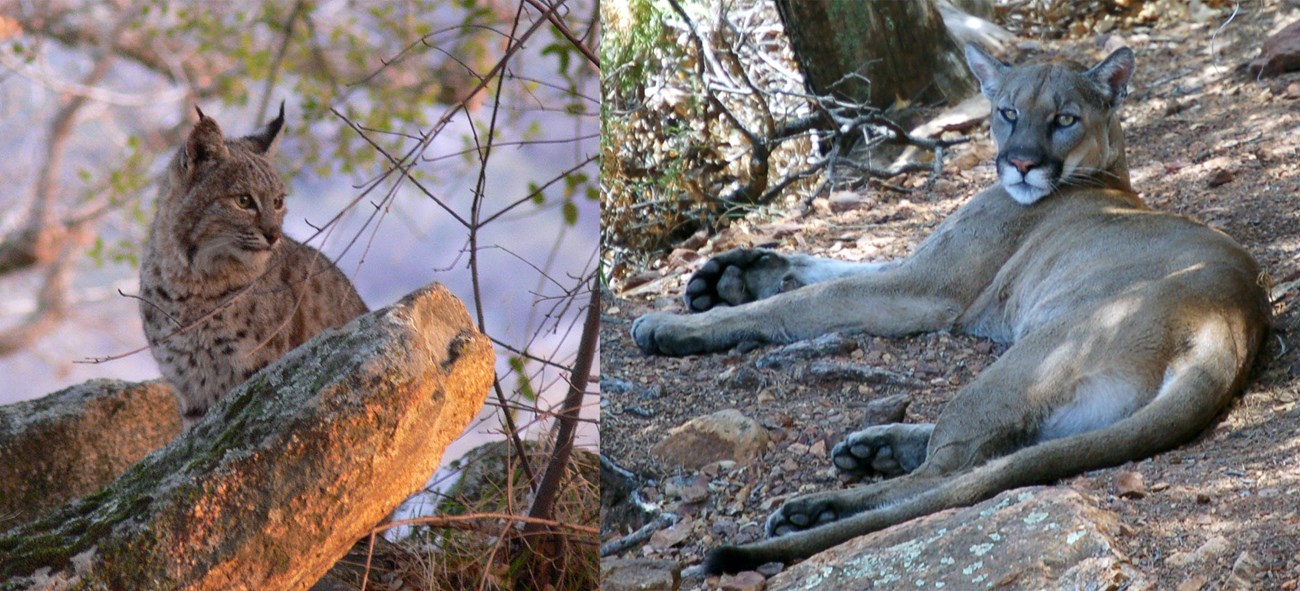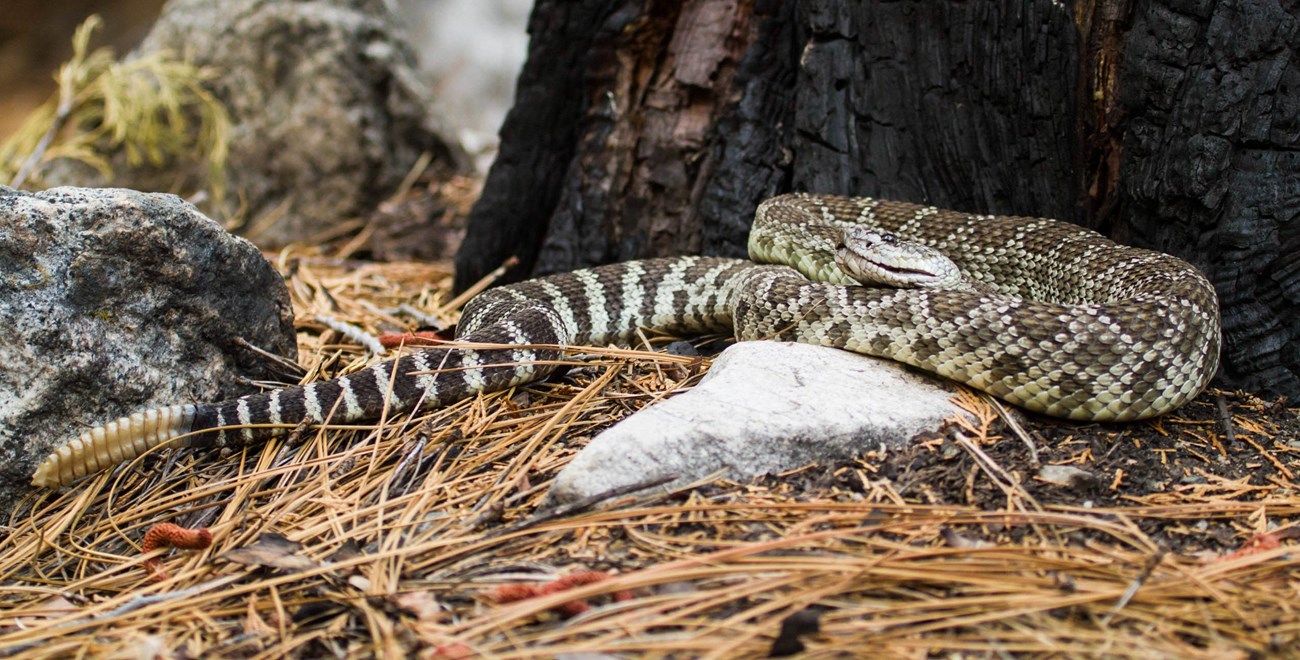
Left: NPS Photo Bobcats and Mountain LionsOccasionally seen, bobcats are slightly larger than house cats and have a bobbed tail. In comparison, mountain lions are much larger and have a long tail. Fully grown, they weigh between 70-180 pounds, and if seen, would appear bigger than a large dog.
BearsBlack bears, though not always black, are found throughout Sequoia and Kings Canyon National Parks. They forage for natural foods, digging up roots in meadows, ripping apart logs, and peering into tree cavities for insects. Unfortunately, when human food becomes available, they learn to forage for human food in place of natural food. If they obtain our food—even just one time—bears begin may break into cars, tents, and cabins. They can become aggressive towards people to obtain food. So while visiting the park, you can protect bears by storing camping food properly and viewing wildlife at a safe distance. View Wildlife from a DistanceThese parks offer a great opportunity to see wildlife in their natural setting, but please remember that all animals here are wild. But remember, never touch or feed ANY wild animals. View animals at safe distances (the length of two city buses from more dangerous animals like bears) or through binoculars. Never disrupt, approach, or disturb animals and cause them to change their normal behavior. Cautiously move away if you find a partially buried animal carcass. Go to the Watching Wildlife page to learn more about how to keep yourself and wildlife safe.

Photo by Donald Quintana RattlesnakesRattlesnakes are common in the Sequoia foothills and in the Kings Canyon at low elevation. Watch where you put your hands and feet! Do not harass or kill them; this is when most bites occur. Bites are rarely lethal, but tissue damage can be severe. If bitten, don’t panic and call 911.
Keep Pets Safe from Wildlife, and Wildlife Safe from PetsTo keep pets safe, as well as wildlife, animals must be on a leash at all times. Pets are vulnerable to tick and snake bites. Bears and deer have also been known to charge or attack dogs. Pick up all pet waste and dispose of properly. Do not leave pets in vehicles where they can easily overheat. |
Last updated: October 2, 2023
